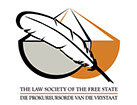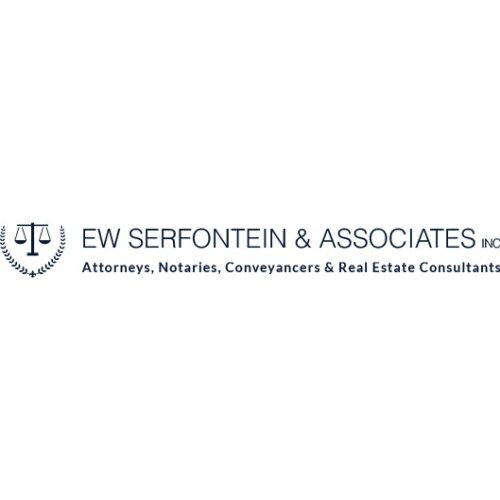Best Bankruptcy & Debt Lawyers in Pretoria
Share your needs with us, get contacted by law firms.
Free. Takes 2 min.
List of the best lawyers in Pretoria, South Africa
South Africa Bankruptcy & Debt Legal Articles
Browse our 1 legal article about Bankruptcy & Debt in South Africa written by expert lawyers.
- Debt Collectors in South Africa: Harassment and Verification
- You can demand proof of the debt, the collector’s authority, and a full breakdown before you pay. Do not acknowledge the debt or make part-payments until you verify it. Harassment is illegal. You may set contact times, request written-only communication, and lodge complaints with the Council for Debt Collectors or... Read more →
About Bankruptcy & Debt Law in Pretoria, South Africa
The field of Bankruptcy & Debt law in Pretoria, South Africa, deals with the legal processes and regulations concerning individuals and businesses that are unable to meet their financial obligations. As the administrative capital of South Africa, Pretoria hosts a wide array of legal practitioners and resources designed to help those facing financial difficulties. Bankruptcy can be seen as a legal tool allowing debtors to make a fresh start by either discharging their debts or reorganizing their finances. It is governed by national legislation, with specific procedures and implications in Pretoria that one should be aware of.
Why You May Need a Lawyer
There are several scenarios where individuals or businesses may require the assistance of a lawyer specializing in Bankruptcy & Debt:
- If you are overwhelmed by debt and unable to manage payments, legal advice can guide you on options like voluntary sequestration or debt restructuring.
- Should a creditor decide to pursue legal action to recover debts, a lawyer can offer representation and negotiate on your behalf.
- Understanding the implications of declaring bankruptcy, including how it affects one's credit rating and future financial activities, may require expert advice.
- Business insolvency cases are complex and involve multiple stakeholders; professional legal guidance is crucial to manage such situations effectively.
- Advisors can help to enforce your rights during the sequestration process or defend you against unfair or illegal debt collection practices.
Local Laws Overview
Pretoria is governed by South African national laws concerning Bankruptcy & Debt, primarily encapsulated in the Insolvency Act, 1936 and, more recently, the National Credit Act, 2005. Key aspects include:
- The concept of voluntary sequestration, where an insolvent debtor applies to the court for a release from their debts by surrendering the estate.
- Compulsory sequestration initiated by creditors if they can prove insolvency and that sequestration would be to the advantage of creditors.
- The role of the Master of the High Court in administering insolvent estates, overseeing liquidators, and ensuring fair distribution of assets.
- The National Credit Act's influence on debt counseling and restructuring to ensure consumers are treated fairly and can avoid sequestration.
- Specific regulations on business insolvency, such as business rescue proceedings to rehabilitate financially distressed companies.
Frequently Asked Questions
What is the difference between bankruptcy and sequestration in South Africa?
In South Africa, the term "sequestration" is often used interchangeably with bankruptcy, particularly regarding individuals. Sequestration is the legal process that declares a debtor insolvent and involves the surrender of the debtor's estate to pay off their creditors.
How does one qualify for debt review or restructuring?
Eligibility for debt review involves proving that you are over-indebted and unable to meet all your financial obligations. It typically requires the assistance of a registered debt counselor who will assess your situation and submit an application on your behalf.
What is voluntary sequestration?
Voluntary sequestration is when an individual willingly applies to the court to declare themselves insolvent. It involves surrendering all assets to a trustee for distribution among creditors. It's commonly used by those seeking relief from overwhelming debt.
Can business debts affect my personal estate?
This depends on the business structure. Sole proprietors are personally liable for business debts, affecting personal assets. In contrast, directors of limited liability companies or close corporations have limited personal liability.
What is business rescue, and how does it work?
Business rescue is a procedure aimed at rehabilitating financially distressed companies by restructuring their affairs, business, property, debts, and equity. It requires filing a notice of commencement with the Companies and Intellectual Property Commission (CIPC).
How long does the sequestration process typically take?
The duration of the sequestration process varies and depends on court schedules and individual circumstances. Generally, it can take several months from application to finalization.
What are the consequences of being declared insolvent?
Consequences include the liquidation of your estate to pay creditors, restrictions on holding certain public offices, operating businesses, and potential impacts on your credit rating.
Can I stop sequestration proceedings initiated by creditors?
Yes, you can oppose sequestration proceedings by proving that you are solvent or that sequestration won't benefit creditors. Legal advice is critical in such scenarios.
What happens to secured debts in the process?
Secured debts are generally paid first from the proceeds of the secured assets. If the secured property value surpasses the debt value, any excess funds go towards settling other creditors.
Is there a way to avoid bankruptcy when facing financial distress?
Debt counseling and restructuring offer alternative solutions to manage financial distress. Negotiating with creditors for payment plans or engaging in voluntary surrender with consent can also avoid bankruptcy.
Additional Resources
Individuals seeking assistance with Bankruptcy & Debt issues may consider the following resources:
- Department of Justice and Constitutional Development: Offers information on legal procedures and referrals for legal assistance.
- National Debt Mediation Association (NDMA): Provides mediation services to help manage debt and avoid bankruptcy.
- Debt Counsellors Association of South Africa (DCASA): Offers listings of accredited debt counselors who can assist with debt review and restructuring.
- Legal Aid South Africa: Offers legal advice and representation for those unable to afford private legal services.
Next Steps
If you are considering bankruptcy or need help managing overwhelming debt, it is crucial to seek professional legal advice. Start by consulting with a qualified lawyer specialized in Bankruptcy & Debt law in Pretoria. Consider scheduling an initial consultation to discuss your options confidentially and understand the implications involved. Remember, the earlier you seek help, the more options you may have available.
Lawzana helps you find the best lawyers and law firms in Pretoria through a curated and pre-screened list of qualified legal professionals. Our platform offers rankings and detailed profiles of attorneys and law firms, allowing you to compare based on practice areas, including Bankruptcy & Debt, experience, and client feedback.
Each profile includes a description of the firm's areas of practice, client reviews, team members and partners, year of establishment, spoken languages, office locations, contact information, social media presence, and any published articles or resources. Most firms on our platform speak English and are experienced in both local and international legal matters.
Get a quote from top-rated law firms in Pretoria, South Africa — quickly, securely, and without unnecessary hassle.
Disclaimer:
The information provided on this page is for general informational purposes only and does not constitute legal advice. While we strive to ensure the accuracy and relevance of the content, legal information may change over time, and interpretations of the law can vary. You should always consult with a qualified legal professional for advice specific to your situation.
We disclaim all liability for actions taken or not taken based on the content of this page. If you believe any information is incorrect or outdated, please contact us, and we will review and update it where appropriate.
Browse bankruptcy & debt law firms by service in Pretoria, South Africa
Pretoria, South Africa Attorneys in related practice areas.













